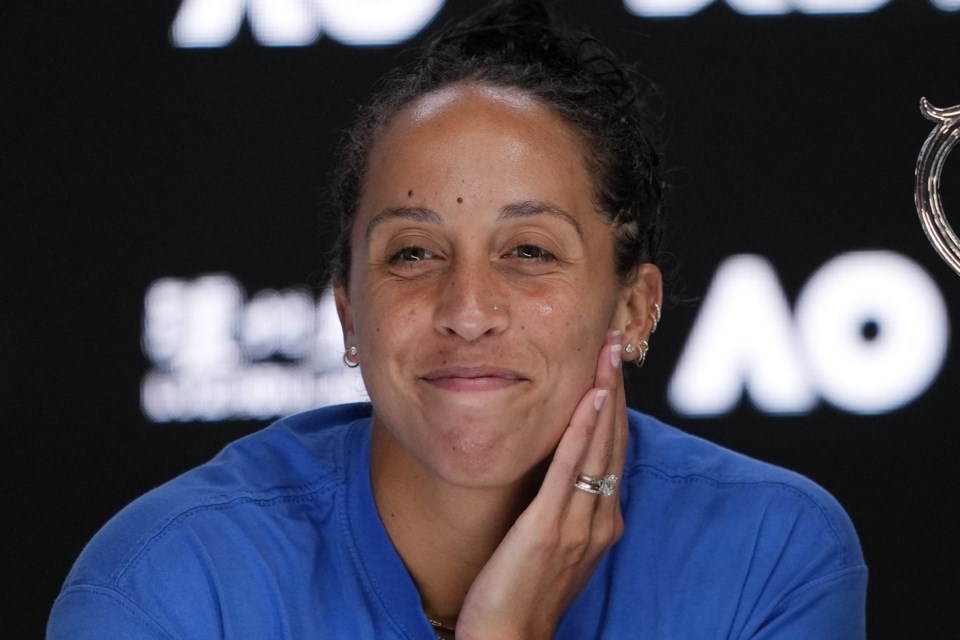MELBOURNE, Australia (AP) ā The first person Madison Keys sent a message to after for her first title on Saturday was her mother.
āBecause,ā a smiling Keys said, āof course you have to text Mom first.ā
One of the others quickly reached out to was her therapist. Keys credits their conversations over the past 1 1/2 years with helping her in life, generally ā understanding herself, discovering what truly matters ā but also on a tennis court, whether it comes to accepting that nerves will arrive during a match or deciding she would be OK with never winning a major trophy.
Keys said during an interview with The Associated Press on Saturday that she and her therapist ātalked a lotā during this trip overseas, including after a narrow victory over qualifier Elena-Gabriela Ruse in the second round last week.
āI called her and said that I was kind of just dealing with some things. And we were able to talk," Keys said. "And then we kind of just continued to text since then.ā
They speak weekly or every other week during the season, when possible.
āThereās also the reality of: Sometimes, Iām like, āHey, I need to talk mid-tournament,ā" Keys explained. "Sometimes itās even just being able to go back and forth (with) someone that can just kind of provide some support.ā
Keys said she first tried speaking with a sports psychologist when she was around 18 or 19, then tried working with others.
āNever really found anyone that I quite connected with and clicked with,ā she said. āAnd then, I finally kind of pivoted and went with my current therapist.ā
During her news conference following the 6-3, 2-6, 7-5 triumph over , Keys mentioned the ways in which therapy helped her move beyond concerns that perhaps prevented her from playing her best in the past. That included the notion that if she never won a major trophy, she wouldn't live up to the expectations of others.
For her, Keys said, the process included ājust being really honest and actually getting help and actually talking to someone ā and not just about tennis, but about how I felt about myself. Again, very uncomfortable. I never really like to be uncomfortable. I honestly think that had I not done that, then I wouldnāt be sitting here.ā
She noted that the WTA women's tennis tour has practitioners available on-site at tournaments but also suggested that sort of thing could be helpful to plenty of folks ā not just professional athletes.
"The stigma around therapy, in general, not just in sports, I think, is slowly starting to go away. I think that everyone should be in therapy, no matter what. I think it helps," Keys said. āNo matter whatās going on in your life, youāre going to have moments where things are tough and you need someone to talk to. I think itās very important.ā
She continued: āIt's something I will continue to do for the rest of my life. If more people do it and more people talk about it, then it just kind of becomes the norm. Itās almost as if youāre going to the doctor. No one bats an eye at that. I think itās just kind of overwhelmingly needed for most people.ā
___
Howard Fendrich has been the APās tennis writer since 2002. Find his stories here: . More AP tennis:
Howard Fendrich, The Associated Press



